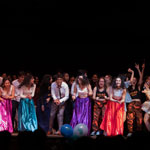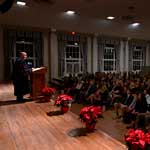
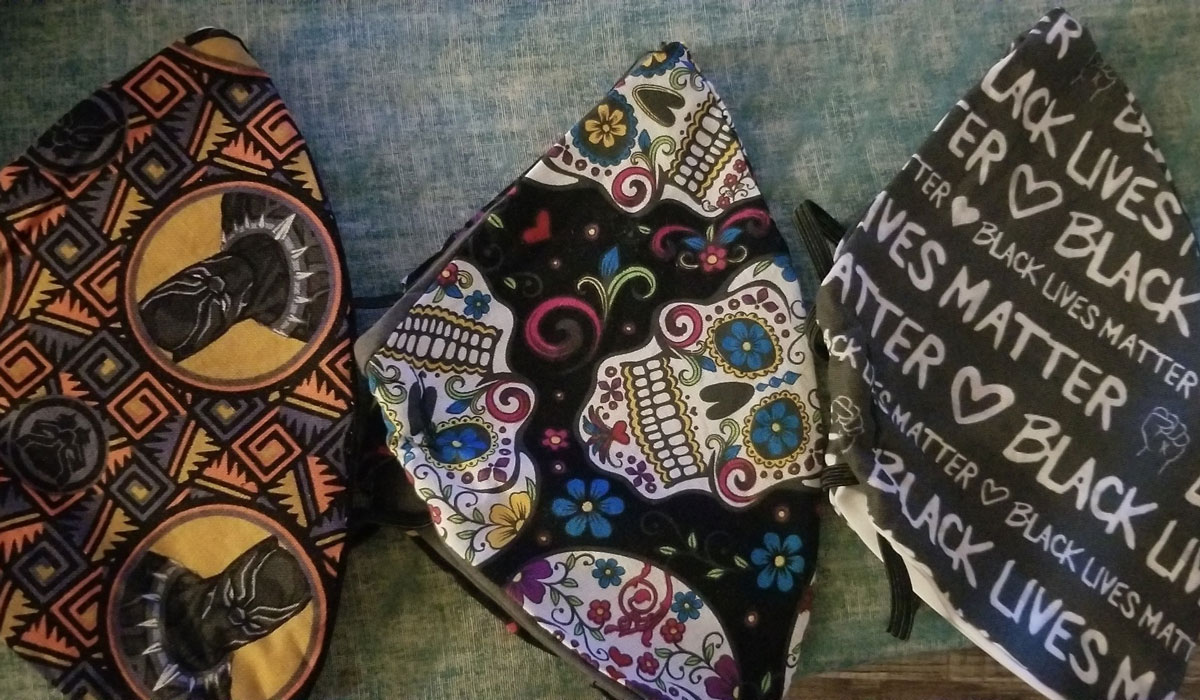
While Gettysburg College has experienced some hurdles during the pandemic, as a united community, we have managed to uphold the values of the institution with perseverance. Gettysburgians, both on campus and beyond, have found creative ways to support each other and ensure our students thrive in an academic year unlike any in the College’s 189-year history.
Take Monique Gore ’06, Executive Director of Multicultural Programming and Outreach for the Office of Multicultural Engagement (OME) at Gettysburg College. To Gore, the pandemic has challenged her to find new means to help remove obstacles confronting students. In doing so, Gore has set a shining example of what it means to be a member of our educational community, particularly as COVID-19 endures and the nation faces generation-defining social issues.
Change starts at home
Gore has a deep-rooted passion for making Gettysburg College a better place for students to live and learn. Reflecting upon her own undergraduate experience, and in speaking with fellow underrepresented alumni of color, Gore often considers how different her Gettysburg experience would have been if she had the resources of today’s students—resources like the establishment and evolution of campus programs, such as the OME, which have brought about positive change within the student experience and challenged the College to enhance its commitments to diversity, inclusion, and belonging.
“I think we are in a much better place as an institution that works for the student, but we still have room to improve and areas where we can grow and change for the better,” said Gore, who majored in Women’s Studies and minored African American Studies.
While, at times, change can be sweeping and transformational, more often it occurs in the smallest of acts—acts that inspire us to be better members of our communities and neighbors to those around us. This is true for Gore.
Following the issuing of CDC guidelines early in 2020 that encouraged individuals to wear masks to help prevent the spread of COVID-19, Gore witnessed how some businesses soon turned the health crisis into a money-making opportunity. Concerned about the implications for marginalized groups, including Gettysburg’s own students, Gore decided to take matters into her own hands. She began making free masks for Gettysburg students who were arriving back on campus for the fall semester.
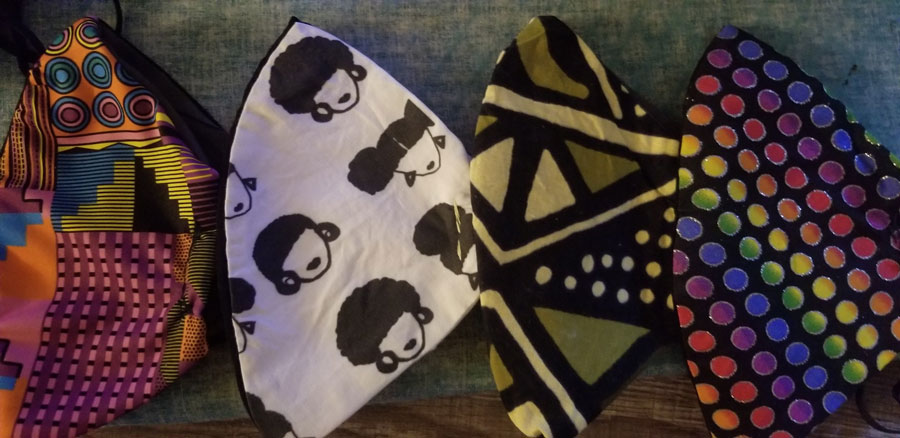
In an effort to safeguard the health and safety of the residential cohorts this fall and spring, Gore has gone out of her way to welcome returning Gettysburg students with masks that she designed and had sewn from her home office.
For Gore, every handcrafted mask serves as a form of self-expression, and each is a symbol of solidarity—a simple yet effective means of protecting one another within the campus community.
Having learned her sewing technique from her grandmother, Gore meticulously created each mask from signature African fabrics and patterns—a bold and vibrant tapestry reflective of the community she has long sought to build on the Gettysburg campus.
The importance of connection
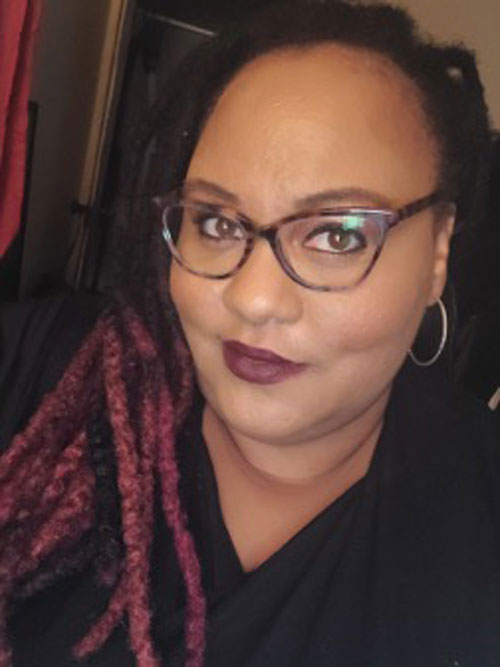
When Gettysburg College was forced to de-densify its on-campus student body last fall following an increase in positive COVID-19 cases, Gore feared how the decision would impact students who were returning home, especially marginalized students who rely on the College for daily nutrition and academic support. Acutely acknowledging the hardships our students are confronting during this trying time, Gore continues to personally reach out to students who are studying remotely to remind them that regardless of where they are, they will always have the College community to support them.
“I believe personal touch goes a long way. When you add on intersecting issues and conditions that marginalized students are going through every day to the narrative, those students of ours need to be connected to the institution more than anybody else because there are so many factors going against them,” said Gore, who believes strongly that human engagement should go beyond virtual meetings, especially in the most challenging of times.
“We need to be more gracious towards one another and acknowledge that this is where we are right now. It’s all about how you reframe how you live and enjoy your life, as well as how you help other people around you.
“For everything I do—not just making masks—I don’t hope to bring out anything other than making sure all the students are safe and know that if they need anything, be it a mask, or moral support, or mental health advocacy, or navigating academic strategies on campus, the OME is right here to help.”
Learn more about how the OME at Gettysburg College champions diversity, inclusion, and belonging, and creates opportunities for underrepresented students on and off campus.
By Boba (Ngoc) Pham ’21
Photos courtesy of Monique Gore ’06
Posted: 04/19/21

